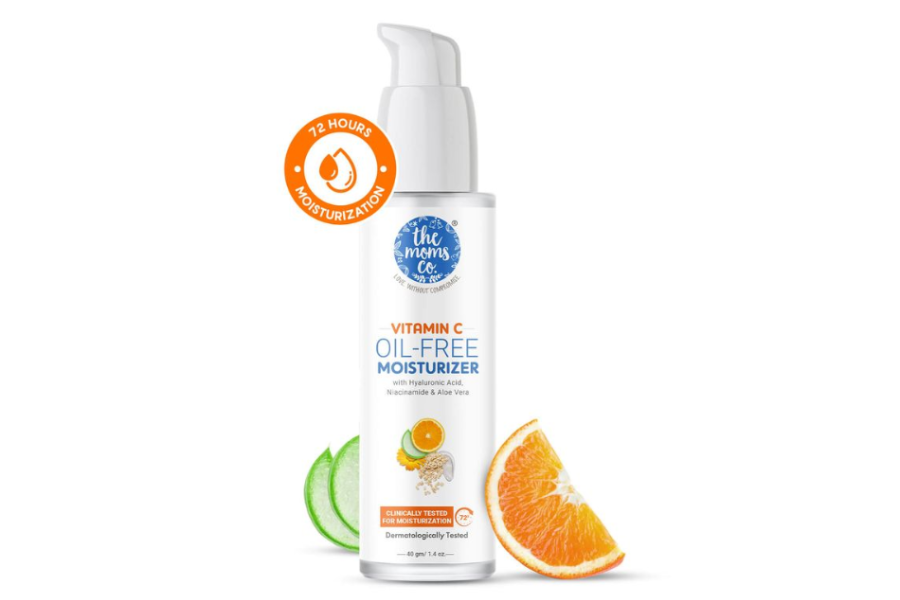
6 Safe And Effective Ways To Treat Acne During Pregnancy
31 Mar 2023 | 4 min Read
Manisha Pradhan
Author | 1053 Articles
Acne is a common skin condition that can occur during pregnancy due to hormonal changes in the body. When the body produces greater amounts of certain hormones, there is an excessive production of sebum(oil) which causes acne during pregnancy.
While it is not harmful to the mother or the baby, it can be uncomfortable and affect a woman’s self-esteem. Acne during pregnancy is usually mild to moderate and can be treated with safe and effective measures that do not harm the developing baby.
Here are some safe and effective ways to treat acne during pregnancy.
Safe And Effective Ways To Treat Acne During Pregnancy
1. Use gentle skincare products
Using gentle skincare products is the first step to managing acne during pregnancy. Harsh cleansers, toners, and exfoliators can irritate the skin and exacerbate acne. Choose skincare products that are labelled “oil-free,” as they are less likely to clog pores and cause breakouts.
Look for products that contain ingredients like glycolic acid, or lactic acid, as these can help exfoliate the skin and unclog pores. However, it is important to note that salicylic acid should be used sparingly and in low concentrations, as high doses can be harmful to the developing fetus.
2. Practice good hygiene
Practising good hygiene is another important step in managing acne during pregnancy. Wash your face twice a day with a gentle cleanser and lukewarm water. Avoid using hot water, as it can strip the skin of its natural oils and cause dryness.
Do not scrub your face vigorously or use rough towels to dry your skin, as this can further irritate acne-prone skin. Instead, pat your face dry with a soft towel.
3. Keep your skin moisturised
Keeping your skin moisturised is crucial in preventing dryness and irritation, which can worsen acne during pregnancy. Choose a non-comedogenic moisturiser that is free of fragrances and other potential irritants. Apply moisturiser after washing your face and before applying any acne treatments.
4. Use a gentle cleanser
It’s important to wash the acne-prone areas with a gentle chemical-free cleanser twice a day. Take a small amount of cleanser and gently massage your face with your fingers. Wash it off with lukewarm water.
Remember to be gentle and avoid scrubbing as it can irritate the skin.
5. Manage stress
Stress can also contribute to acne during pregnancy. Practising stress management techniques, such as deep breathing exercises, yoga, and meditation, can help reduce stress and improve overall well-being.
Getting enough sleep and exercising regularly can also help reduce stress and improve the appearance of acne-prone skin.
6. Maintain a healthy diet
Maintaining a healthy diet can also help improve the appearance of acne-prone skin during pregnancy. Eat a diet rich in fruits, vegetables, whole grains, and lean proteins, and avoid processed foods and sugary snacks.
Drinking plenty of water can also help keep skin hydrated and reduce the appearance of acne.
Acne during pregnancy is a common condition that can be managed with safe and effective measures. It can be prevented and treated in some safe and effective ways as listed above. However, if you are concerned about your acne consult your doctor before starting any medication.
Add these natural products to your pregnancy skincare
Also Read:
5 Ways Every Mom-to-be Can Look After Her Underarms: Use these tips to keep your underarms clean.
4 Ingredients For Every Mom To Use With Ceramides: Find out what you need to use with ceramides.
Cover image source: freepik
A


Related Topics for you
Suggestions offered by doctors on BabyChakra are of advisory nature i.e., for educational and informational purposes only. Content posted on, created for, or compiled by BabyChakra is not intended or designed to replace your doctor's independent judgment about any symptom, condition, or the appropriateness or risks of a procedure or treatment for a given person.



